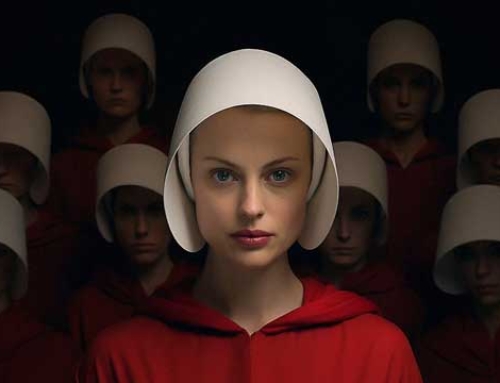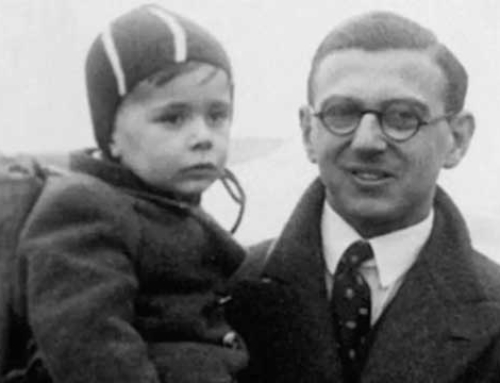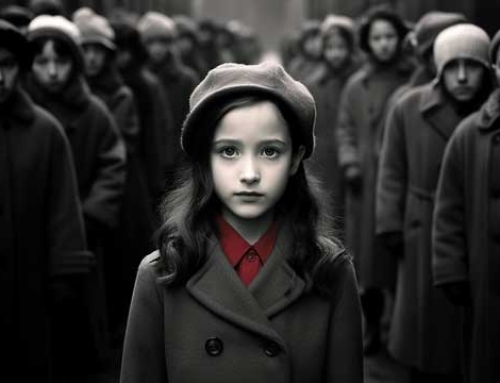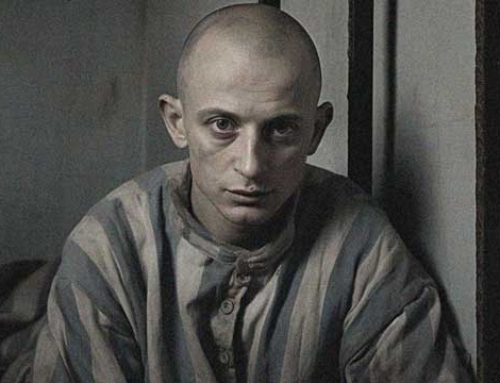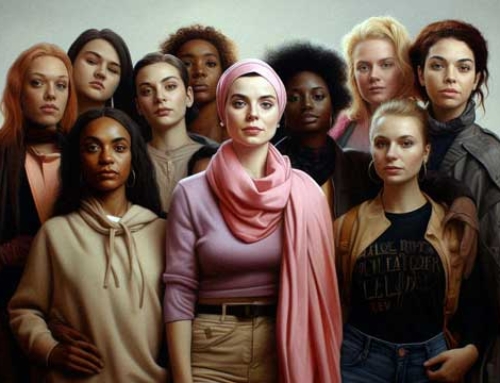In the context of women’s rights, where the fight for equal rights and gender equality is a global focus, it’s crucial to understand the unique situations and challenges faced by specific communities and countries. Israel, with its rich historical and cultural backdrop, offers a fascinating insight into this matter, particularly concerning the rights of Jewish women.
The influence of religion on Israeli society is undeniable. But how does this influence relate to women’s rights, and how has it shaped history?
While some believe that religion and tradition go hand in hand with limitations, others argue that the true essence of Judaism promotes gender equality and respect.
In this article, we delve deeper into the intricate relationship between religion, politics, and women’s rights in Israel. We’ll explore the historical context, examine the various interpretations of women’s rights within Judaism, and discuss the implications of the growing influence of ultra-orthodox political parties on women’s status in the country. As we do this, we remain respectful of every individual’s fundamental right to practice their religion, but we won’t hesitate to ask critical questions where necessary. Let’s embark on this captivating journey together.
Historical Overview of Women’s Rights in Israel
When Israel was established in 1948, it marked not only the birth of a new nation but also the hope for a society where equality and justice would thrive.
The country’s declaration of independence emphasized its commitment to social and political rights for all its citizens, regardless of gender, religion, or race. Within this lay a promise for women to play an equal role in building and advancing the new state.
The early waves of feminism in Israel were heavily inspired by both Western feminist movements and the country’s unique context. Women fought for their rights in the workplace, family life, and political arena. They demanded equal pay for equal work, better representation in political positions, and an end to gender-based discrimination. These movements led to significant legislative changes and policies that strengthened women’s position in Israeli society.
Historically, women have always played a pivotal role in Israeli society and politics. From the brave women who helped establish kibbutzim to the female soldiers defending their nation and political leaders steering the country, like Golda Meir, Israel’s first female prime minister. Their contributions paved the way for future generations of women to leave their mark on every facet of Israeli society.
However, despite these early successes and the substantial contributions of women, challenges and obstacles still need to be overcome. The ongoing influence of religion, tradition, and political shifts has led to a dynamic and sometimes tense relationship between gender equality and cultural norms in the country.
What Does Judaism Truly Say About Women’s Rights?
Judaism, with its deep roots and rich history, has much to say about the role and rights of women. But what do the sacred scriptures genuinely convey, and how is this interpreted in contemporary society?
Basic Principles of Jewish Teachings on Gender Equality
At the heart of Jewish teachings lies the idea that all humans are created in God’s image, implying an inherent dignity and value in every individual, regardless of gender. The Talmud, a central textual reference for Jewish law and tradition, contains numerous discussions about women’s rights, ranging from property rights to personal autonomy.
Prominent Female Figures in the Torah and Their Significance
The Torah, Judaism’s holy book, is replete with stories of strong and influential women. Figures like Sarah, Rebecca, Rachel, and Leah are not just mothers of the Jewish people but also symbols of strength, wisdom, and determination. Queen Esther, who used her position to save the Jewish people, is another example of female leadership and courage. These stories underscore the vital role women have played in shaping Jewish identity and tradition.
Differences Between Cultural Practices and Religious Teachings
While Jewish texts contain many principles of gender equality, there’s sometimes a gap between these teachings and cultural or traditional practices. In some Jewish communities, cultural norms and traditions might lead to more conservative roles for women, while in others, women hold leadership positions in both religious and secular contexts. It’s essential to differentiate between what religious texts genuinely convey and how they’re interpreted or applied in various cultural settings.
Understanding the Jewish perspective on women’s rights requires a nuanced approach, considering both religious texts and the diverse ways they’ve been interpreted over time.
Modern Orthodox Judaism vs. Ultra-Orthodox Judaism: Differing Interpretations
Judaism, with its rich tradition and history, encompasses various movements, each with its interpretations and practices. Two of the most discussed movements in the context of women’s rights are Modern Orthodox Judaism and Ultra-Orthodox Judaism. While both rooted in orthodox tradition, they have different approaches to the role and rights of women.
Basic Principles of Both Movements
Modern Orthodox Judaism
This movement aims to combine traditional Jewish laws and values with the modern world. They believe in engaging with contemporary society while simultaneously adhering to the halacha (Jewish law).
Ultra-Orthodox Judaism
Also known as Haredi Judaism, this movement emphasizes strictly following the halacha and distancing from modern influences, often resulting in closed communities.
How Each Movement Interprets and Practices Women’s Rights
Modern Orthodox Judaism
Women in this community often have access to religious education and can play active roles within the community. While they respect traditional gender roles, discussions and evolutions about women’s roles in religious practices, such as leading prayer groups or studying the Talmud, are ongoing.
Ultra-Orthodox Judaism
Women have clearly defined roles, often centered around family life and the community. There are stricter restrictions for women regarding their participation in religious ceremonies and public events. For instance, women sit separately from men during prayer services and don’t actively participate in religious study at the same level as men.
The Role of Women in Religious Ceremonies and Daily Life Within Both Groups
Modern Orthodox Judaism
Women can be involved in prayer services, religious studies, and community activities. They can also hold professional roles outside the home and engage in broader societal life.
Ultra-Orthodox Judaism
Women’s primary role is often seen as that of a mother and caregiver within the family. They might be involved in charitable work and community services, but their participation in religious ceremonies is more limited.
Grasping these nuances is crucial for a comprehensive understanding of women’s position within Judaism and how different interpretations of sacred texts influence their daily lives.
The Rising Power of Ultra-Orthodox Political Parties and Implications for Women’s Rights
Israel, though a young nation, has a complex political landscape that’s continually evolving. One of the most notable shifts in recent years is the growing influence of ultra-orthodox political parties. This shift has had significant implications for women’s rights in the country.
Recent Political Shifts in Israel
In recent years, ultra-orthodox parties, such as Shas and United Torah Judaism, have taken on a more prominent role in Israeli coalition governments. Their influence hasn’t remained limited to religious matters but has also affected the broader policy and legislation of the country.
Examples of Policies and Laws Impacting Women’s Rights
The increasing influence of these parties has led to proposals like expanding the powers of the all-male rabbinical courts and promoting gender segregation in public spaces. Other measures, like limiting the use of female images in government advertisements, have also raised concerns about the direction in which women’s rights are heading.
Personal Stories and Testimonies, Like That of Inbal Boxerman
Inbal’s experience, where she was prevented from boarding a train by a group of men claiming the carriage was men-only, is just one example of how these political shifts impact women’s daily lives. Such incidents aren’t isolated and highlight the growing tensions in Israeli society over gender roles and religious influence.
The Tension Between the Right to Religious Freedom and Ensuring Fundamental Human Rights
Religious freedom is a fundamental right that must be respected and protected. However, when practices under the guise of religious freedom infringe on the fundamental rights of others, in this case, women, a conflict arises. Balancing respect for religious beliefs and ensuring equal rights for all citizens is a challenge Israel, like many other countries, grapples with.
The rising power of ultra-orthodox parties in Israel raises critical questions about the future of women’s rights in the country and how these rights can be safeguarded in light of shifting political dynamics.
Women’s Rights in Israel: Between Historical Progress and Contemporary Challenges
Reflecting on the current state of women’s rights in Israel, it’s evident that both progress has been made and challenges have arisen. The country’s rich history, intertwined with its unique religious and cultural dynamics, has led to a complex landscape of gender equality and rights.
It’s of utmost importance that continuous dialogue and understanding remain between the various groups within Israeli society. Only through open communication and respect for each other’s perspectives can solutions be found that respect religious beliefs while ensuring women’s fundamental rights.
In conclusion, taking action and raising awareness on this topic is vital. Everyone, regardless of gender, religion, or background, should be encouraged to speak out, learn, and contribute to a future where the rights of all citizens are respected and protected.



